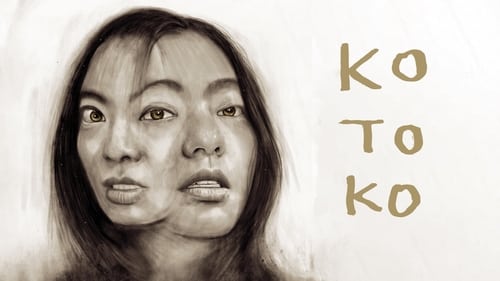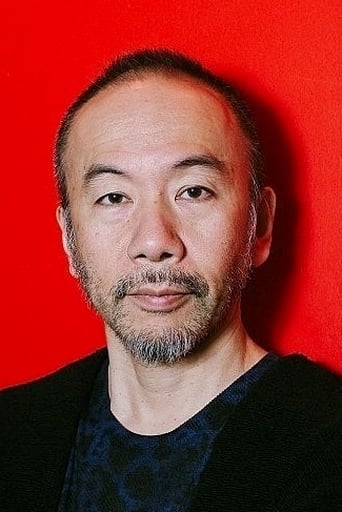Kattiera Nana
I think this is a new genre that they're all sort of working their way through it and haven't got all the kinks worked out yet but it's a genre that works for me.
BootDigest
Such a frustrating disappointment
Phonearl
Good start, but then it gets ruined
Geraldine
The story, direction, characters, and writing/dialogue is akin to taking a tranquilizer shot to the neck, but everything else was so well done.
The Movie Diorama
This is quite an unknown film, in fact I know of no one who has actually even heard of this let alone seen it. Therefore, I'm braving new territory. I'm pleased to report that this is exceptional filmmaking. A young single mother suffers from a mental illness that enables her to see double, questioning what is reality and what is fantasy. Tsukamoto has achieved excellence with Kotoko. He is able to convey the solitude and disparity of a fractured mind with visceral filming techniques. The transition from slow camera movements to explosive shakiness (albeit over accentuating that movement slightly too much) highlights the violence that she suppresses and unfortunately succumbs to. There is self-harming. There are visions of horrific imagery that no parent (or anybody) would ever want to see. Yet, it's imperative that these are shown. The complexity of her illness makes her a liability, her eventual loneliness only worsens the situation and I believe it's important that the bloody violence conveys that raw emotion. You feel helpless watching her. Both the internal and external struggles of this rare psychological detriment are explicitly portrayed where all of your emotions are drained. This is a relentless drama, and I admire the personable perspective. A feature film debut for singer-songwriter Cocco who delivers an outstanding performance. There is a stunning one take scene of her belting out a melancholic song, and I was transfixed. She held my gaze, grabbing my eyes and refusing to let go. Just masterful. The loud piercing noises throughout increases the broken nightmarish reality that she lives. The story does lack some attention towards the psychological aspects of this illness, where certain scenes do feel slightly too ambiguous for its own good. Also, a vision involving her son towards the end was too violent. However Tsukamoto's heartbreaking drama remains grounded throughout and holds one of the best debut performances I've seen. It's not an easy watch, but do check this out and give it some adoration.
Paul Magne Haakonsen
With all the praise and good reviews I had encountered for this movie, I was sort of excited and hyped up to actually get to watch it. And it was with a certain amount of excitement when it finally arrived from Amazon and I popped it into the DVD player.And now having seen "Kotoko", I sit here somewhat disillusioned. On one hand, the movie was rather good and enjoyable, but at the same time it was a disappointment and a lousy experience.Let's start with the good parts there is to the movie. The acting in the movie was quite good, especially the performance put on by Cocco (playing Kotoko). She really impressed me greatly in this movie, and her portrayal of a woman with these deeply rooted problems and issues was really moving and impressive. And she really carried the movie on her shoulders so nicely.The story itself is also one of the better parts of the movie, as it is a story that is deeply disturbing, but also a magnificent journey into the downward spiralling psyche of a woman with debilitating mental problems.That being said, then it should also be said that the movie is severely flawed and dragged down by some questionable and shoddy camera work. Throughout great parts of the movie, the camera was shaking and all over the place. Yeah, it did add an element of confusion and incoherency to heighten Kotoko's distorted view of the world around her. But for us in the audience, it was a nuisance and a moment of irritation. I don't pay money to watch a movie shot in a way that makes it look like something I could do myself with my own hand-held camera.The movie has some really beautiful moments, just as it does have some really disturbing and painful moments. There are some rather graphic images and visuals that may not be suitable for every one in the audience, and thus the 18 years of age label on the cover. But still, there are some issues in the movie that does raise eyebrows."Kotoko" is a beautiful and yet ugly movie at the same time. But it just doesn't really manage to stand out in the Japanese market of movies, and as hard as director Shin'ya Tsukamoto tries, then Takashi Miike has done something fairly similar, just pulled off in a better way.If you enjoy movies that deal with the problems of the human psyche and the downward spiral of mental stability, then you might want to check out "Kotoko". It should be chiseled out once again, that Cocco was really the one making this movie watchable.I am rating "Kotoko" a 6 out of 10, mostly because of Cocco's performance, but also because the movie does have some strong, solid moments. But in overall, it just didn't manage to fully stand out on its own from many other movies on the market.
ebossert
Shinya Tsukamoto directs this film about a woman with severe psychological disorders. It's evident early on that she has almost completely lost her mind because she engages in self-mutilation and hallucinates into seeing evil doppelgangers that do not exist. Tsukamoto has historically made films with somewhat bizarre yet fascinating characters and conflicts. Such is also the case here as he creates a very dangerous, uncomfortable environment for the protagonist's newborn child. The narrative becomes difficult to interpret at times, but this is well shot and oddly absorbing with a unique feel. There is some bloody violence and a few shocking scenes. This is a film that will be very divisive amongst viewers, but I found it even more impressive after a second viewing.
filmbizarro
In a story that is co-written by its star, Cocco, we're also allowed into her personal life. The themes of this film are based on her real personality. Although it's very likely it goes to this extreme: Kotoko is a single mother that is suffering from an illness that gives her double vision. This double vision is not your typical optical issue, but more like an hallucination. It causes her to see two of the people she meets, and one of the two is usually the good or bad opposite of the other. The question is, which one is real? She has learned that she doesn't have double vision as long as she sings. But this is not something she seems to take advantage of. Because of this, she's terrified of letting her child meet strangers. Ultimately, this causes her to decide that they need to isolate themselves in the apartment. But after a big breakdown which causes authorities to think she is abusing the child, they take it from her and give the custody to Kotoko's sister. Kotoko is allowed to meet her child now and then, but things are not the same. Kotoko's inevitable downfall involves her harming herself more and more. This is where Tanaka (played by Tsukamoto himself) steps in. He found himself fascinated by Kotoko after hearing her sing on the bus, and begins to stalk her in hopes to get her hand marriage. After realizing she is deeply troubled, he is still set on getting her love, so he (obsessively) tries to help her through it. By letting her harm him, instead of herself.One of the opinion-dividing things about "Kotoko" is how much you feel that you have to understand about her. Her character is suffering greatly, but we're not fully being allowed into her mind. Personally, this made it all the stronger to me. As an audience, I quite enjoy feeling disoriented when dealing with mentally instable characters. It makes sense to me that you wouldn't be allowed to know it all. If you know how she thinks and how her illness works, you'll be able to figure out the consequences to actions in her surroundings. And that takes out a big load of the intensity that I get from "Kotoko". The moment we're forced to understand an illness, we're going to judge it accordingly. What Kotoko is suffering from is therefor a stranger to us, and it keeps it uncalculated.The visual style of Shinya Tsukamoto is on top in this one. The shaky camera feels a lot more appropriate here than in "Tetsuo: The Bullet Man" (one of the things I at times found annoying in that film) because it feels part of the journey. Wherein "Tetsuo: The Bullet Man" it probably served as a modern tool to make it intense, and maybe get away with some effects. Here it's to visually present what's in her mind, it seems. The cinematography overall is great in this one. Some shots are among his best to date. A quite experimental scene towards the end where the kid toys starts to "live" and move around Kotoko is incredible. Equally great are the hallucinations, even though they are kept a lot more realistic (often violent, though).You can rest assured that "Kotoko" offers some Shinya Tsukamoto trademark violence - quite over-the-top effects that somehow still remain realistic. It's what he does best. It's never as crazy as in the world of Tetsuo, and not as genre-bending as in "Toyko Fist". Rather it's exaggerated to make it more effective. And successfully so. The scenes of self-inflicted harm are pretty damn raw, while the scenes of a beaten Tanaka are more exaggerated. Then there's a scene towards the end that I think will work wonders with most viewers. Very strong and effective FX in "Kotoko" overall.How can I wait until the sixth paragraph before I get into the acting of Cocco? It's not the violence nor the visuals that keeps this so intense. It's the acting of Cocco. Her intense screams are especially harrowing and can bring a chill up your spine in some scenes. You simply want her to stop, because they're so chaotic and quite frankly built a feeling of angst and panic in me. Of course, her acting isn't great only because of the screaming, but that's one thing that I think will leave everyone slightly scarred. They also use her musical expertise as a painkiller for her character, and even though this is not really a musical you can expect lots of music. In contrast to her horrific screams, her singing is slow and beautiful.There is more to be said about "Kotoko", but I think I have to limit myself. Simply put, I really liked "Kotoko". Devastating, insane, intense and creative in a way that only Shinya Tsukamoto knows how. This is a lot more personal than many of his films, and one that I feel affects me more than most of them as well. Although it's not as good as his best work, I do think this ranks up high. Somewhere near "A Snake of June", I'd say. If you want to go through a series of tonal shifts, from depressing and sad, to violent, to semi-surreal and finally to almost comedic at times, then check it out. Shinya Tsukamoto remains on top!Full review, as well as more reviews at: www.FilmBizarro.com



